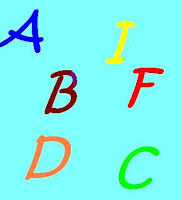We begin a new school year with guess what, a new grading policy. Let’s face it, grading is an art, not a science. Sure, you can do the math, calculate the curves, and post the numbers. The question, however, is, “how meaningful is that grade to the students, the parents, the administration?” The answer depends, of course, on who answers.
How important are grades? Well, we use them to determine class rank, GPA, UIL eligibility, scholarship awards, school club membership, at-risk identification, school rank, and a plethora of other school and non-school judgments. We grade for responsibility (doing it reliably) and processibility (doing it gradually) and mastery (doing it correctly). (I won’t even address the impact of the behavioral grades that we all give.)
The grade for responsibility is based on quantity, how much of the assignment did the student complete? This is appropriate if your objective is to teach the student the consequences of not doing the job. It does little for content mastery other than encourage practice. Grading for processibility, the formative assessment, provides your students with a idea of where they are in the learning process for that lesson, unit, project. We call these quizzes, notebook checks, labs, workbook exercises, and other process controls. Grading for mastery, the summative assessment, is the mother lode of learning feedback. It lets your student know if she got it and how well. We call these major tests, six-week tests, semester projects, term papers, and other assignments that arrange the building blocks of the lesson into a completed structure.
I wrestle with testing every year. I adjust and re-adjust my assessments to match ability, differentiate, accommodate, and evaluate in a meaningful manner to communicate to the student where he or she is at that given moment. Currently, I am reading Ken O’Connor’s How to Grade for Learning. (For his latest, A Repair Kit for Grading: 15 Fixes for Broken Grades, Anne Keith offers a good overview.) Rick Wormeli’s Fair Isn’t Always Equal: Assessing & Grading in the Differentiated Classroom is next on my list. Some day, if I am up to it, I might tackle Robert Marzano’s Classroom Assessment and Grading That Work (Still, anyone who remixes and updates Bloom’s Taxonomy on a scholarly level intimidates me a bit.). And, I’m not even ready to approach Alphie Kohn.
So, how well does your grading policy, whether personal, departmental, and/or district, give meaningful feedback to the student? Can you defend your assessments to a disgruntled parent? Are you in sync with the latest directive from administration? Are you personally satisfied that your grading methodology is the best that it can be?
A place where Texas teachers can discuss educational and professional issues.
Subscribe to:
Post Comments (Atom)





No comments:
Post a Comment